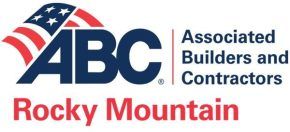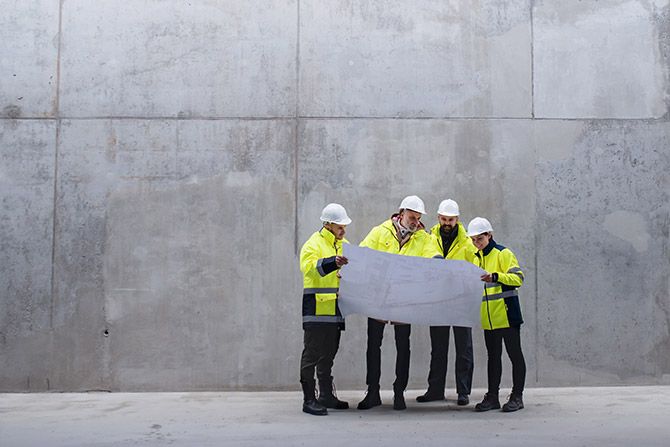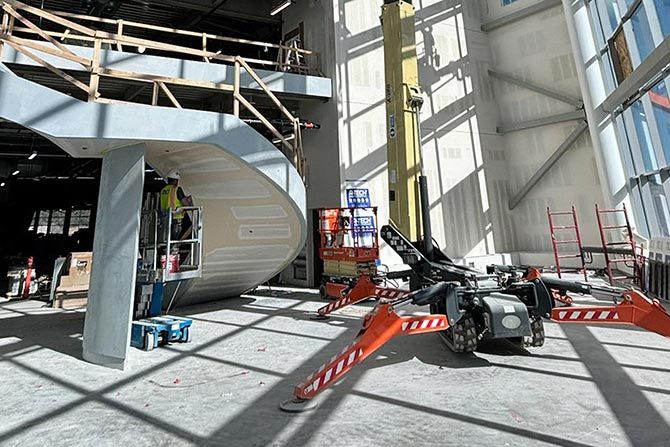Innovation, efficiency and cost-effectiveness are crucial in the construction industry, yet government-mandated Project Labor Agreements (PLAs) often act as barriers rather than bridges, leading to higher costs and limited opportunities. PLAs exclude nearly 9 out of 10 workers in the U.S. construction industry from building and rebuilding America and their own communities because they do not belong to a union. Merit-shop contractors, who prioritize equal opportunities regardless of union membership, excel in fostering innovation, inclusivity and fair competition, offering a compelling alternative. Organizations like ABC are pivotal in promoting merit-shop principles, advocating for fair and open competition, and championing policies that empower all contractors to contribute to the industry. As we explore the drawbacks of PLAs and refute their perceived benefits, let’s advocate for open competition to strengthen the construction industry and our workforce to benefit the communities in which we work.
What Are PLAs?
PLAs are pre-hire agreements that establish the terms and conditions of employment for specific construction projects. Typically mandated by government entities, these agreements often require contractors to adhere to union rules, hire workers from union halls and contribute to union benefit plans — even if they already provide benefits to their employees. While proponents argue that PLAs ensure project stability and efficiency, the reality is far more complex.
The Hidden Costs of PLAs
One of the most significant drawbacks of PLAs is their impact on project costs. Studies have shown that PLAs can increase project costs by 12% to 20%,1 primarily due to reduced competition and mandated wage rates that exceed market norms. When contractors are forced to comply with union-specific requirements, non-union contractors often face barriers to entry, resulting in fewer bidders and inflated costs. Ultimately, these costs are passed on to taxpayers and project owners, straining budgets and limiting the scope of infrastructure development. A 2021 study in California found that PLA mandates increased the cost of affordable housing construction by 14.5% and resulted in the construction of 800 fewer units than could have been produced with the same amount of funding without PLA mandates.1
Reduced Competition Hurts Everyone
PLAs disproportionately affect merit-shop contractors, who make up more than 89%2 of the construction workforce in the United States. By excluding these contractors or forcing them to operate under unfamiliar and restrictive rules, PLAs stifle innovation and reduce the pool of skilled labor available for projects. This exclusionary practice puts merit-shop contractors at a disadvantage and undermines the principles of a free market, where competition drives quality and value. We need all of America’s seven million-plus strong construction workforce3 to rebuild America — not just the 10.7% of the construction industry who belong to a union.
The Impact on Communities
PLAs also have a profound impact on local communities. By prioritizing union labor, these agreements often exclude local, non-union workers from participating in projects within their own communities, despite merit-shop contractors paying taxes that fund those projects as well. This exclusion undermines economic development and denies local workers the opportunity to contribute to (and benefit from) critical infrastructure projects. In contrast, merit-shop enterprises prioritize hiring based on skill and qualifications, ensuring that the best talent — regardless of union affiliation — is utilized.
The Case for Open Competition
Open competition — the hallmark of the merit-shop philosophy — offers a compelling alternative to PLAs. By allowing all qualified contractors to bid on projects, open competition fosters innovation, drives down costs and ensures that taxpayers receive the best value for their investment. Merit-shop enterprises prioritize performance, safety and quality, creating an environment where excellence thrives.
At its core, the merit-shop model champions fairness and inclusivity. By removing barriers to entry, it empowers contractors to compete based on their skills and capabilities rather than their affiliations. This approach not only benefits contractors but also strengthens the industry as a whole, ensuring that projects are completed efficiently and to the highest standards.
Legislative Solutions
Legislative action is essential for promoting open competition and mitigating the negative impacts of PLAs. At the federal level, the Fair and Open Competition Act seeks to prohibit government-mandated PLAs on federally funded projects. State and local governments can also play a pivotal role in promoting open competition. By enacting policies that prohibit or limit the use of PLAs, these entities can ensure that taxpayer dollars are spent wisely and that all qualified contractors have the opportunity to contribute to public projects. Advocacy and education are key to driving these changes and building a more equitable industry.
The Road Forward: Embracing Merit-Based Principles
The construction industry thrives on innovation, efficiency and competition — principles that are often undermined by Project Labor Agreements. By embracing the merit-shop philosophy and promoting open competition, we can create a more inclusive, dynamic and cost-effective industry. The benefits extend beyond the industry to taxpayers, communities and the broader economy, ensuring that infrastructure development serves as a catalyst for progress rather than a source of division.
Now more than ever, it is essential to advocate for policies that prioritize fairness, value and opportunity. By rejecting PLAs and championing open competition, we can build a stronger future for the construction industry and the communities it serves.








